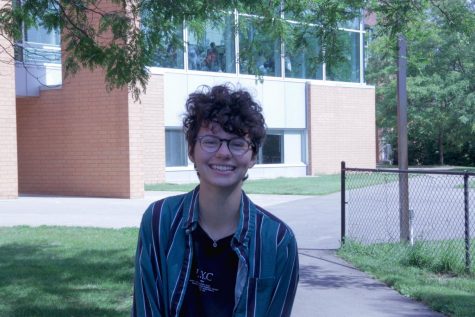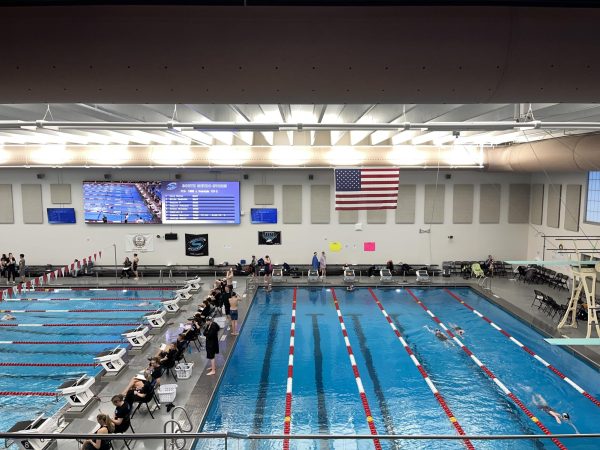Student identities are not up for debate
Sydeny Lewis is crossing her arms with a composition notebook.
In most English and social studies classes, our teachers like to find fun, controversial topics to debate. We use these topics to develop our skills in forming arguments and pulling examples from a text. We don’t consider that the topics we debate are impacting the lives of the students debating.
In Honors Civics freshman year, we debated gay marriage. People expressed opinions on whether gay marriage should be legal, a decision that has already been law in our country since 2015. We talked about it like the decision was ours to make and that us talking about it would validate or invalidate the decision made by the Supreme Court. We talked about it like there weren’t people in the room who were impacted by the issue. We talked about it like it wasn’t sending a message to every LGBTQ+ student in that class that they aren’t valid.
My basic human rights aren’t up for debate. The issues we discuss are not only happening out in the world, they are happening right here in Eden Prairie High School. Whether or not I deserve to have the right to marry should not be a choice made by freshmen in high school. My classmates talked about it like there weren’t any LGBTQ+ people in the room. They talked about it like this issue would never actually impact anyone they know, so saying that their religious freedom was more important wasn’t insensitive.
In other classes such as Honors English 10 and AP Language and Composition, we hold Socratic seminars to show that we can pull evidence from books and outside sources into a discussion. The topics that are chosen are often talked about without anyone there whom the issue affects.
In AP Language and Composition, we discussed Native Americans, cultural appropriation and restoration without anyone who is Native American present. We sat in a circle discussing what we think should be done without giving any thought to what Native Americans want. As we sat there, we silenced their voices by deciding how to make reparations for their mistreatment.
If the conversation is about a group where no one from that group is represented in the conversation, no decisions or debates should take place. There is no reason for choices to be made for another group without their consent or input.
Instead, teachers should address topics that are not going to personally offend the students in the classroom and make sure there is representation at the table. No teacher wants to make their students feel uncomfortable or ostracized and there is no way to ensure every student feels safe, but by reaching out and communicating with students, teachers can create a more positive and welcoming learning environment.

My name is Sydney Lewis and I am a senior! When I’m not writing for the Eyrie I am probably in the theatre or at a political event. I mostly write about...






